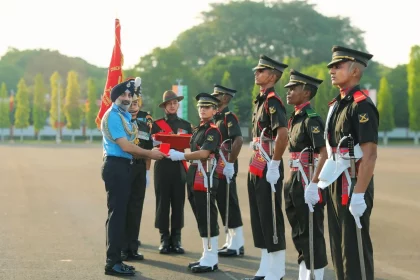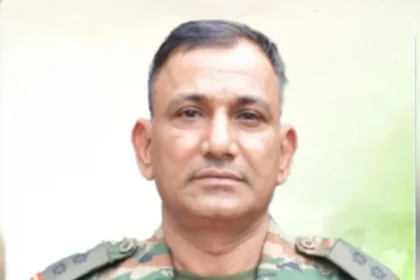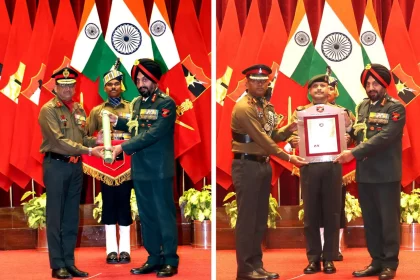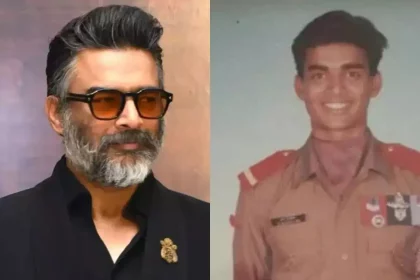Bombay Sappers Pay Tribute to Naik Gawade Vikas Vitthal for Supreme Sacrifice on UN Peacekeeping Duty
Soldier–Engineer Lays Down Life Restoring Critical Supply Route in Upper Nile, Exemplifying India’s Commitment to UN Peacekeeping and Humanitarian Service.
Indian Army SSC Tech 67 Notification for Men and Women (Out Now)
Applications Open for Engineering Graduates and Widows of Defence Personnel; Course to Commence at OTA Chennai in October 2026.
Chinar Corps Pays Tribute to Subedar Hira Lal for Supreme Sacrifice in Baramulla
Indian Army Reaffirms Solidarity With Bereaved Family, Honours Braveheart’s Courage and Selfless Service.
South Western Command Holds Investiture Ceremony 2026 at Jaipur Military Station
Gallantry awards, distinguished service honours and unit citations highlight courage, professionalism and selfless service across Sapta Shakti Command.
He Was Maharashtra’s Best NCC Cadet and Dreamed of the Indian Army — Today, R Madhavan Stars in a ₹1,200 Crore Blockbuster
From elite NCC training and a missed Army call to global stardom—R Madhavan’s journey proves discipline never goes out of…
INS Chilka POP 02/25: Anita Yadav Named Best Woman Agniveer as 2,172 Trainees Pass Out
2,172 trainees, including 113 women Agniveers, graduate in a post-sunset parade reaffirming the Navy’s values of duty, honour, and courage.






